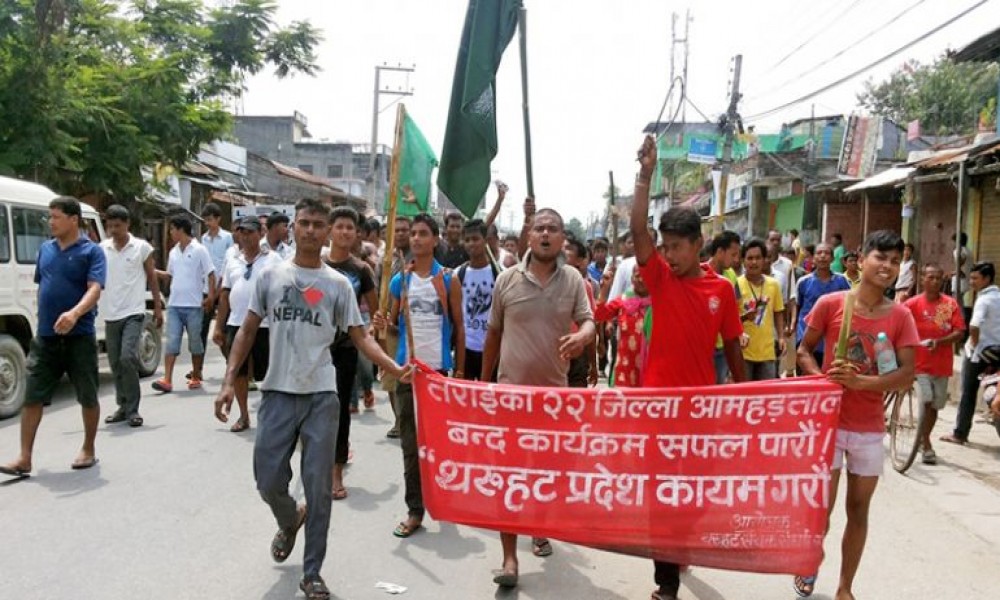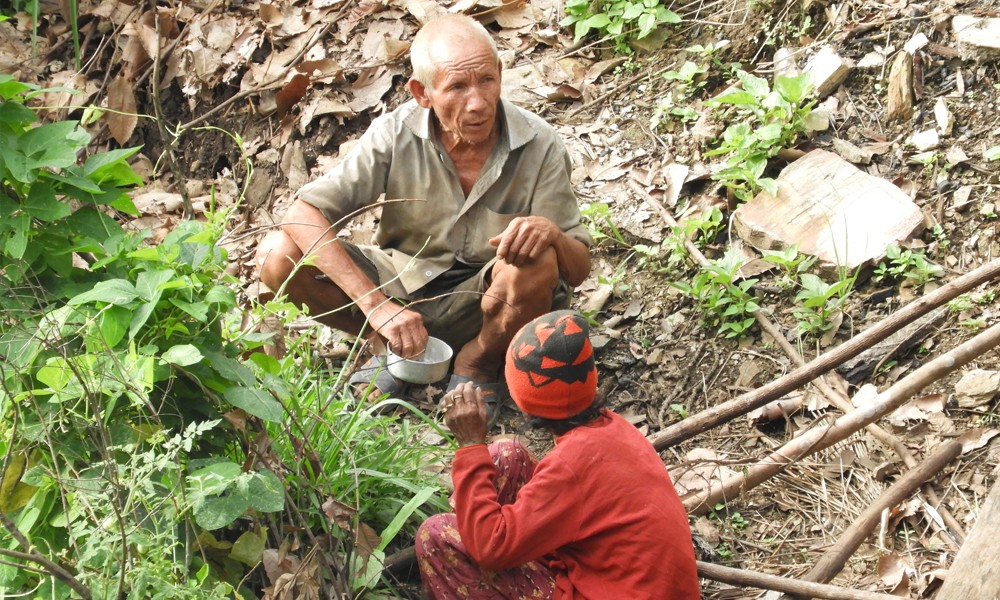Santosh Tharu
In Nepal, ethnicity remained the basis for systematic discrimination and marginalization for ages. As the Constituent Assembly (CA) prepares to pass the new constitution, debate over federalism, a remedy adopted to redress ethnicity-based discrimination, has intensified like never before. In the western plains, the Tharus, an indigenous community spread across the Tarai from Jhapa to Kanchanpur, are now agitated demanding a Tharuhat province.
The major political parties have signed a deal to carve out two major provinces in the Tarai. But parts of the Tarai will be linked with other hill provinces. But this federalism model will not address grievances of the people living in the Tarai. To federate the Tarai in a more scientific and just way, there should be three provinces in the Tarai.
Why three provinces in the Tarai?
It was the late king Mahendra who encouraged people from India to settle down in the Tarai. People who came from India started calling the Tarai as Madhes. When debate over federalism began, they floated slogans for one Madhes province stretching from Jhapa to Kanchanpur. But that was not acceptable to the Tharus. When the Tharus rose against the demand for one Madhes province, the Madhesi parties relented and agreed on two provinces in the Tarai.
Federating the Tarai into two provinces is not a good idea, looking at ethnic composition of this region.
But federating the Tarai into two provinces is not a good idea, looking at ethnic composition of this region. In the eastern part of the Tarai, Tharu, Rajbanshi, Danuwar, Meche, Gangai, Tajpuriya and Kisan communities have been living for ages. They are together known as a Kochila community. In the central Tarai, Madhesi people outnumber non-Madhesi communities. In the western Tarai, the Tharus have been living from even before the hill dweller Bahun and Chhetris settled down there around 50 years ago.
According to Stalin, certain geographic area, common language, shared economy and culture are the basic requirements of a country. This rule applies for forming states or provinces, too.
In the western plains, from Nawalparasi to Kanchanpur, creating a Tharuhat province would be a reasonable proposition because this is where the Tharus have been living. They speak Awadh-Tharu language and agriculture is their economy. They have been oppressed by the hill settlers. So, creating a Tharuhat state would be a remedy of injustice done to the Tharus.
In the central Tarai, from Parsa to Dhanusa district, the Madhesi people are in a majority. Like the Tharus, they have been marginalized by the state, They speak Maithali and Bhojpuri language. They have a shared identity of Madhesi. So, creating a Madhes province would be a way to make them feel as part of the Nepali nation state.
In the eastern Tarai, east of Kamala river, the Tharus and the Kochila community have been cohabiting for ages. Creating a Kochila province would do justice to people living there.
In the eastern Tarai, east of Kamala river, the Tharus and the Kochila community have been cohabiting for ages. Creating a Kochila province would do justice to people living there.
The demand for three provinces in the Tarai has not come out of the blue. Various political forces have batted for three provinces in the Tarai. Bijaya Kumar Gachhadar's Madhesi Jan Adhikar Forum (Democratic) has floated a proposal to carve out three provinces in the Tarai. Some NC lawmakers and leaders from the Tarai have also floated a similar proposal. The Madhesi front of the UCPN (Maoist) has also demanded three provinces. Nearly five years ago, an all-party meeting of Tharu organizations had unveiled a declaration to fight for three provinces in the Tarai.
So the seven-province federalism model should be modified before passing the new constitution. Creating three provinces in the Tarai is the best way to address aspirations of all the people living in the Tarai.









